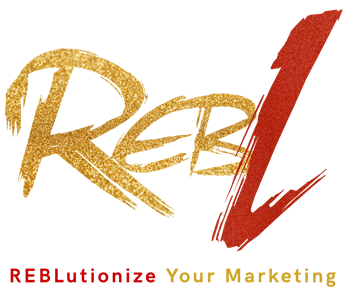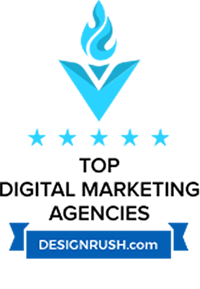How to Do an SEO Content Audit (2025 Guide)
If your content isn’t ranking, converting, or driving consistent traffic, you don’t need more content—you need a content audit.
An SEO content audit is your blueprint for cleaning up your website, enhancing visibility, and turning underperforming pages into lead generators. This comprehensive 2025 guide walks you through the exact steps, tools, and strategies used by top-performing marketing teams to unlock growth using content they already have.
What Is an SEO Content Audit?
Think of it as a performance review for your website content. An SEO content audit evaluates all your existing pages to determine:
- Which pages drive organic traffic and conversions
- Which are outdated or underperforming
- Where gaps or cannibalization issues exist
It’s a diagnostic tool that helps you identify what to keep, what to fix, and what to eliminate—so you can scale smarter, not harder.
“70% of marketers say updating existing content is more effective than creating new.” – HubSpot
Why You Should Audit Your Content (Now, Not Later)
If any of these sound familiar, it’s time to run a content audit:
- Rankings are slipping despite consistent publishing
- You have hundreds of blogs, but don’t know what’s working
- You’re spending time and money on new content, yet ROI is flat
- Your site has duplicate content or keyword overlap
Google prioritizes relevance and quality over volume. A content audit helps you:
- Refresh outdated information to regain rankings
- Improve UX by removing fluff
- Focus SEO efforts where it matters most
Step-by-Step SEO Content Audit Process
1. Export Your Full Content Inventory
Use tools like Screaming Frog, Sitebulb, or ContentKing to extract all indexable URLs, page titles, H1s, word count, and status codes.
Alternatively, export data from:
- Google Search Console (performance data)
- Google Analytics (behavior metrics)
- CMS (publication dates, categories)
Organize this into a central spreadsheet.
2. Identify Top Performers and Bottlenecks
Review metrics for each URL:
- Organic traffic (GSC)
- Keyword rankings (SEMrush, Ahrefs)
- Bounce rate + time on page (GA4)
- Backlinks and social shares
- Conversions or CTA clicks (CRM or Tag Manager)
Build a quadrant:
- High traffic + high conversions = Optimize
- High traffic + low conversions = Improve CTA/copy
- Low traffic + high conversions = Add SEO enhancements
- Low traffic + low conversions = Remove, merge, or redirect
3. Map Content to the Funnel + Intent
Tag every piece of content with:
- Funnel stage: TOFU, MOFU, BOFU
- Intent: Informational, Navigational, Transactional
This ensures you’re not overloading the top of the funnel while neglecting buyer-ready content. Highlight gaps in conversion-stage or high-intent content.
4. Categorize Content: Keep, Update, Merge, or Delete
Create a column for “Action Needed” and mark:
- Keep: High performance, evergreen relevance
- Update: Refresh stats, structure, SEO
- Merge: Combine with similar underperformers
- Delete: Irrelevant, outdated, or duplicate pages (use 301 redirects where needed)
Use color coding or filters to manage efficiently.
5. Optimize for SEO Best Practices
Revisit each page for:
- Primary keyword placement (title, H1, intro, alt text)
- Heading structure and readability
- Internal link opportunities (link to related pages with context-rich anchors)
- Image optimization (compress files, add descriptive alt tags)
- Meta descriptions that drive clicks
Use Surfer SEO or Clearscope to benchmark against top results.
6. Refresh Content Based on Gaps & Keyword Wins
Once you’ve diagnosed underperforming assets, prioritize:
- Updating old stats or broken links
- Adding visuals, FAQs, and schema markup
- Improving flow and formatting for scannability
- Injecting fresh internal and external links
- Adjusting for semantic SEO and NLP-based phrases
Republish with a fresh date and request reindexing via GSC.
7. Track Progress and Plan Future Audits
Create a dashboard in Google Looker Studio or Airtable to:
- Track before/after traffic
- Monitor rankings for updated URLs
- Set quarterly or bi-annual audit reminders
Document what worked and refine your playbook with every audit.
Common SEO Audit Issues to Watch For
X Duplicate or Thin Content
Pages under 300–500 words, or multiple URLs targeting the same keyword, dilute authority. Merge or redirect them.
X Orphan Pages
If a page isn’t linked from any other page on your site, Google and users can’t find it. Add contextual internal links.
X Keyword Cannibalization
Avoid having 3 blogs target the same keyword. Consolidate into one stronger, intent-matched piece.
✓ Quick Wins Checklist:
- Redirect or noindex outdated content
- Add internal links to isolated pages
- Use canonical tags to solve duplication
Tools That Make It Faster and Smarter
| Tool | Purpose | Free? |
|---|---|---|
| Google Search Console | Track organic traffic, indexing, and keyword queries | Yes |
| Screaming Frog | Crawl your site to extract URLs, metadata, and errors | Yes (limited) |
| SEMrush / Ahrefs | Audit backlinks, keywords, and competitive gaps | No |
| Surfer SEO / Clearscope | On-page SEO recommendations based on top SERPs | No |
| REBL Labs | SEO-optimized AI content creator for refreshing and scaling updates | Yes trial / Paid |
Pro Tip: Use REBL Labs to rewrite underperforming intros, generate alternative H1s, or build internal link structures with SEO-ready copy.
Final Thoughts: Don’t Let Great Content Underperform
You don’t need a new content strategy. You need to make your current content work harder.
- Reclaim rankings with better-optimized evergreen pages
- Create a better user experience by cleaning out clutter
- Build an SEO system that scales without starting from scratch
SEO content audits aren’t just a best practice—they’re a competitive advantage.




